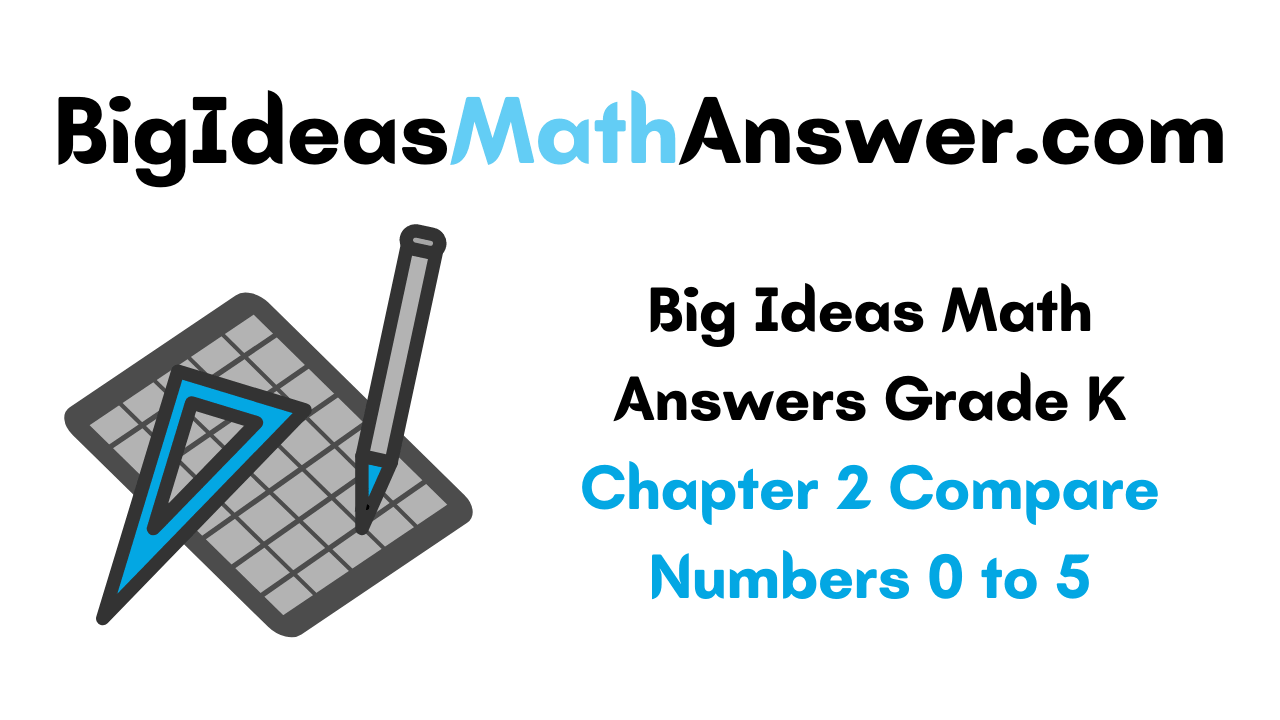Student’s who are in search of Big Ideas Math Answers Grade K Chapter 2 Compare Numbers 0 to 5? If our guess is correct, then you are on the right page. Learn the concepts in-depth with the help of Big Ideas Math Book K Grade Chapter 2 Compare Numbers 0 to 5 Solution Key. To excel in the exam, we suggest the elementary school students of the K Grade standard refer to the Big Ideas Math Answers Grade K Chapter 2 Compare Numbers 0 to 5. Hence Download Bigideas Math Kth Grade Answers Chapter 2 Compare Numbers 0 to 5 Pdf for free from here.
Big Ideas Math Book Grade K Answer Key Chapter 2 Compare Numbers 0 to 5
Make your learning more fun with the help of our Big Ideas Math Book K Grade Answer Key for Chapter 2 Compare Numbers 0 to 5. Get step-by-step explanations for all the questions by using the figures from BIM Grade 2 Answers Chapter 2 Compare Numbers 0 to 5. Just click on the below links and start practicing for the exams.
Vocabulary
Lesson: 1 Equal Groups
Lesson: 2 Greater Than
Lesson: 3 Less Than
Lesson: 4 Compare Groups to 5 by Counting
Lesson: 5 Compare Numbers to 5
Chapter 2 – Compare Numbers 0 to 5
- Compare Numbers 0 to 5 Performance Task
- Compare Numbers 0 to 5 Activity
- Compare Numbers 0 to 5 Chapter Practice
Compare Numbers 0 to 5 Vocabulary
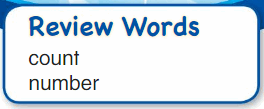
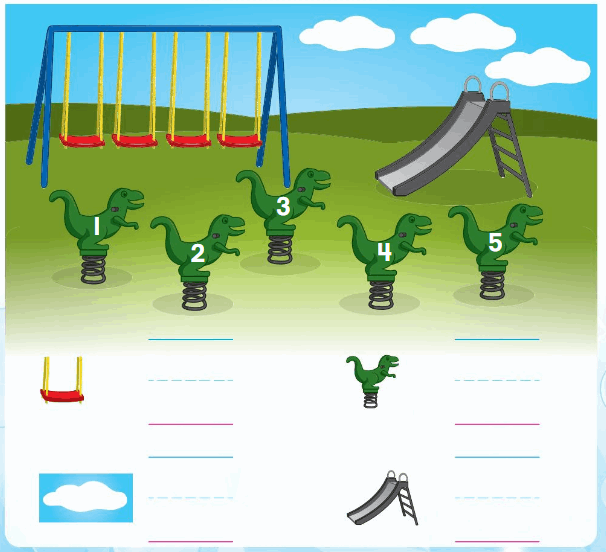
Answer:
The objects are:-
clouds = 3
toys = 5
slider = 1
cradle = 4
Explanation:
In the above-given figure,
given that count the objects. say the number. write the number.
clouds = 3
toys = 5
slider = 1
cradle = 4
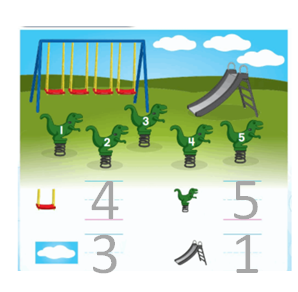
Directions:
Count the objects. Say the number. Write the number.
Chapter 2 Vocabulary Cards
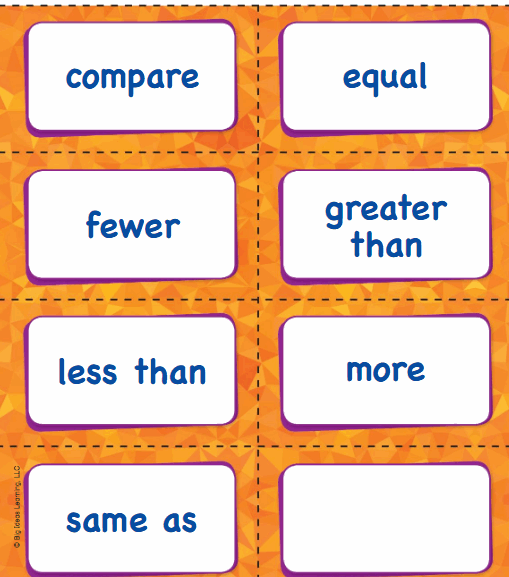
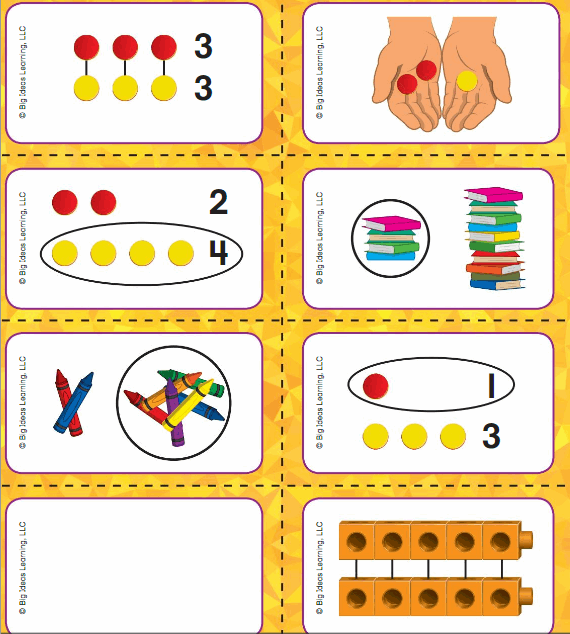
Lesson 2.1 Equal Groups
Explore and Grow
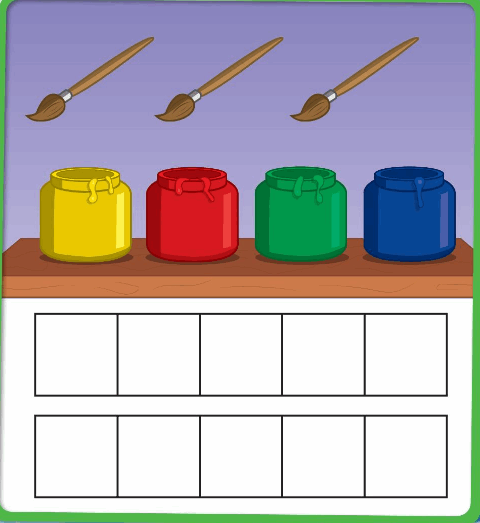
Answer:
The number of paintbrushes = 3
The number of paint jars = 4
Explanation:
In the above-given figure,
the number of paintbrushes = 3
the numbers of paint jars = 4
No there are no paintbrushes for each paint jars.
There are only 3 paintbrushes.
the paintbrushes = 4
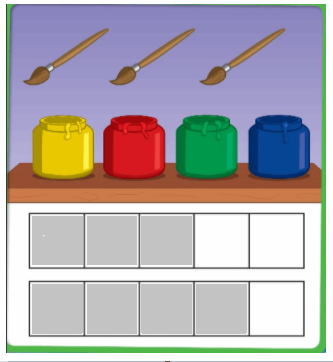
Directions:
Use counters to show the number of paintbrushes. Use counters to show the number of paint jars. Is there a paint brush for each paint jar?
Think and Grow
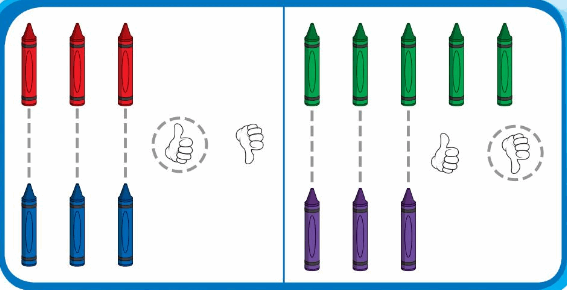
Answer:
In Group A the number of objects is equal.
In Group B the number of objects is not equal.
Explanation:
In the above-given figure,
In group A the number of red pencils is equal to the number of blue pencils.
In group B the number of green pencils is not equal to the number of purple pencils.
Directions:
Draw lines between the objects in each group. Are the numbers of objects equal? Circle the thumbs up for yes or the thumbs down for no.
Apply and Grow: Practice
Question 1.

Answer:
The number of objects is not equal.
Explanation:
In the above-given figure,
the number of green pencils is not equal to the number of purple pencils.
so we have to circle down.

Question 2.

Answer:
The number of objects is equal.
Explanation:
In the above-given figure,
the number of blue balls is equal to the number of red balls.
so we have to circle up.

Question 3.

Answer:
The number of objects is not equal.
Explanation:
In the above-given figure,
the number of orange crayons is not equal to the number of pink crayons.
so we have to circle down.
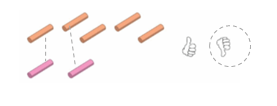
Question 4.
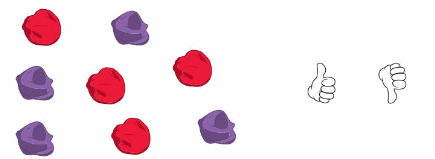
Answer:
The number of objects is equal.
Explanation:
In the above-given figure,
the number of blue balls is equal to the number of red balls.
so we have to circle up.
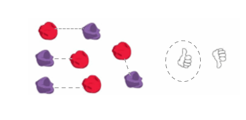
Directions:
1 – 4 Draw lines between the objects in each group. Are the numbers of objects equal? Circle the thumbs up for yes or the thumbs down for no.
Think and Grow: Modeling Real Life
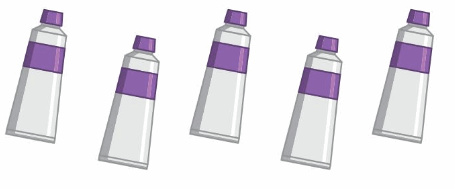
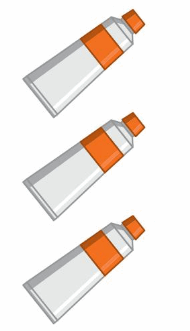
Answer:
In group A the number of paint tubes and the number of paint spots is equal.
Explanation:
In the above-given figure,
the number of paint tubes and the number of paint spots are equal.
so we have to circle the thumb up.
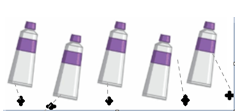
Answer:
In group B the number of paint tubes and the number of paint spots is not equal.
Explanation:
In the above-given figure,
the number of paint tubes and the number of paint spots is not equal.
so we have to circle the thumb down.
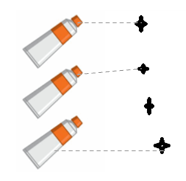
Directions:
- Draw paint spots so that the numbers of paint tubes and paint spots are equal. Draw lines between the objects in each group to show that you are correct.
- Draw paint spots so that the numbers of paint tubes and paint spots are not equal. Draw lines between the objects in each group to show that you are correct.
Equal Groups Homework & Practice 2.1
Question 1.
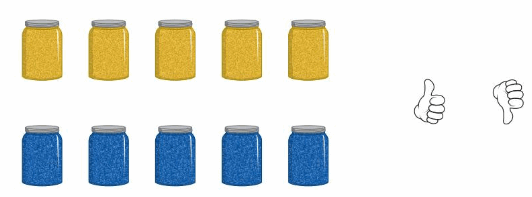
Answer:
The number of objects is equal.
Explanation:
In the above-given figure,
the number of blue bottles is equal to the number of yellow bottles.
so we have to circle up.
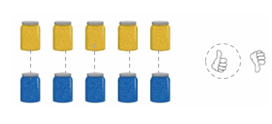
Question 2.

Answer:
The number of objects is not equal.
Explanation:
In the above-given figure,
the number of purple pencils is not equal to the number of red pencils.
so we have to circle down

Directions:
1 and 2 Draw lines between the counters in each group. Are the numbers of objects equal? Circle the thumbs up for yes or the thumbs down for no.
Question 3.
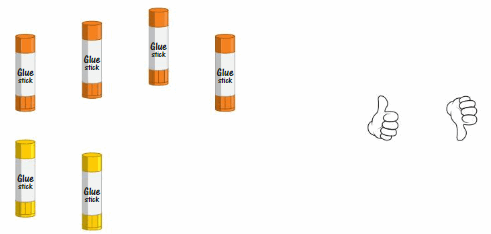
Answer:
The number of objects is not equal.
Explanation:
In the above-given figure,
the number of orange bottles is not equal to the number of yellow bottles.
so we have to circle down.
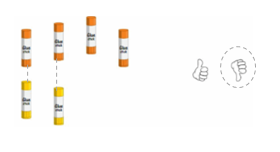
Question 4.
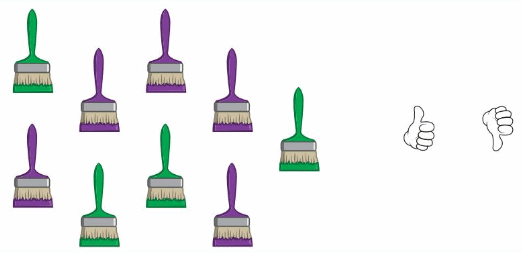
Answer:
The number of objects is not equal.
Explanation:
In the above-given figure,
the number of blue brushes is not equal to the number of green brushes.
so we have to circle up.
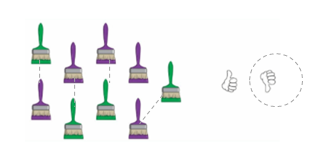
Question 5.
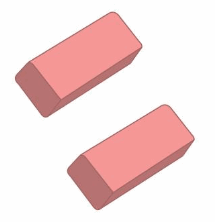
Answer:
the number of erasers is equal to the number of pencils.
Explanation:
In the above-given question,
we have to draw the pencils for the erasers.
so the number of erasers is equal to the number of pencils.
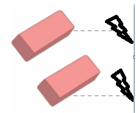
Directions:
3 and 4 Draw lines between the objects in each group. Are the numbers of objects equal? Circle the thumbs up for yes or the thumbs down for no. 5 Draw pencils so that the numbers of erasers and pencils are equal. Draw lines between the objects in each group to show that you are correct.
Lesson 2.2 Greater Than
Explore and Grow
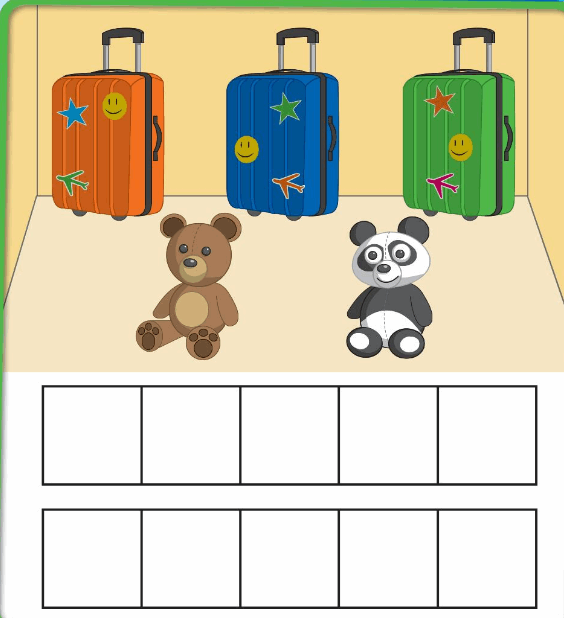
Answer:
The number of suitcases is more than the number of stuffed animals.
Explanation:
In the above-given figure,
The number of suitcases is more than the number of stuffed animals.
suitcases are greater than the stuffed animals.
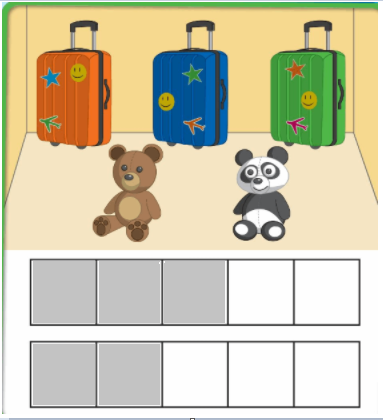
Directions:
Use counters to show the number of suitcases. Use counters to show the number of stuffed animals. Are there more suitcases or more stuffed animals?
Think and Grow
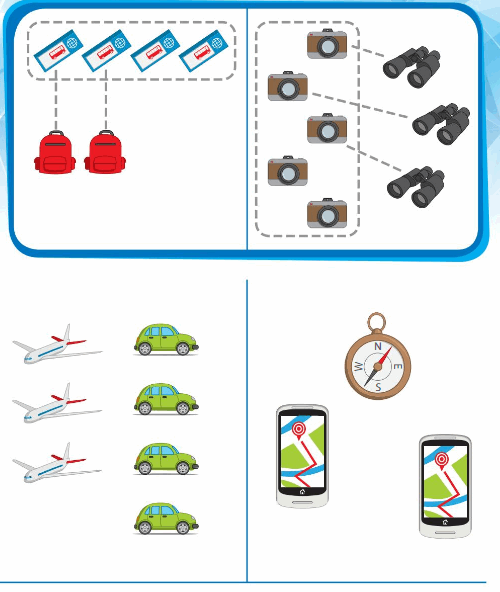
Answer:
The number of cars is more than the number of airplanes.
so we have to circle the cars.
Explanation:
In the above-given 1st figure,
given that circle, the group is greater than the number of the other group.
The number of cars is more than the number of airplanes.
so we have to circle the cars.
Answer:
The number of mobiles is more than the number of watches.
so we have to circle the mobiles.
Explanation:
In the above-given 2nt figure,
given that circle, the group is greater than the number of the other group.
The number of mobiles is more than the number of watches.
so we have to circle the mobiles.
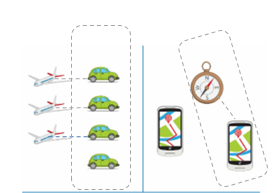
Directions:
Draw lines between the objects in each group. Circle the group that is greater in number than the other group.
Apply and Grow: Practice
Question 1.
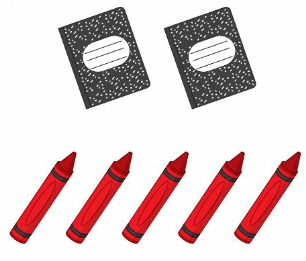
Answer:
The number of pencils is more than the number of books.
so we have to circle the pencils.
Explanation:
In the above-given figure,
given that circle, the group is greater than the number of the other group.
The number of pencils is more than the number of books.
so we have to circle the pencils.
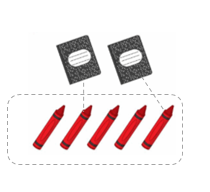
Question 2.
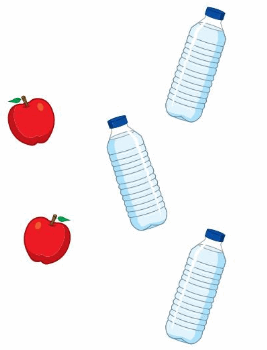
Answer:
The number of bottles is more than the number of apples.
so we have to circle the bottles.
Explanation:
In the above-given figure,
given that circle, the group is greater than the number of the other group.
The number of bottles is more than the number of apples.
so we have to circle the bottles.
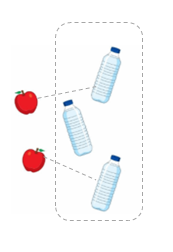
Question 3.
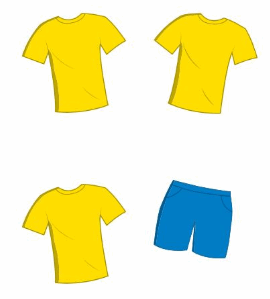
Answer:
The number of shirts is more than the number of shorts.
so we have to circle the shirts.
Explanation:
In the above-given figure,
given that circle, the group is greater than the number of the other group.
The number of shirts is more than the number of shorts.
so we have to circle the shirts.
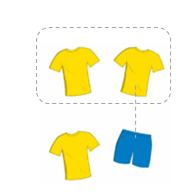
Question 4.
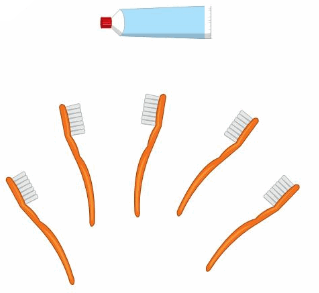
Answer:
The number of toothbrushes is more than the number of toothpaste.
so we have to circle the brushes.
Explanation:
In the above-given figure,
given that circle, the group is greater than the number of the other group.
The number of toothbrushes is more than the number of paste.
so we have to circle the brushes.
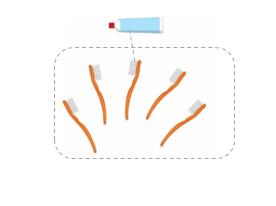
Directions:
1 – 4 Draw lines between the objects in each group. Circle the group that is greater in number than the other group.
Think and Grow: Modeling Real Life
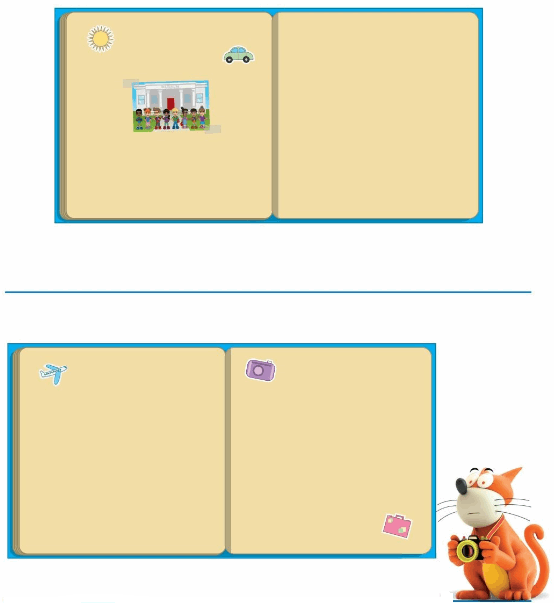
Answer:
The number of photos is greater than the number of stickers.
Explanation:
In the above-given figure,
The number of photos is greater than the number of stickers.
given that draw lines between the object in each group.
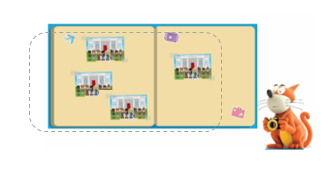
Directions:
Draw photos on the scrapbook so that the number of photos is greater than the number of stickers. Draw lines between the objects in each group to show that you are correct.
Greater Than Homework & Practice 2.2
Question 1.
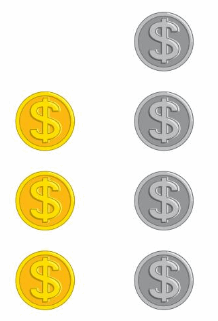
Answer:
The number of grey color coins is more than the number of yellow color coins.
so we have to circle the grey color coins.
Explanation:
In the above-given figure,
given that circle, the group is greater than the number of the other group.
The number of grey color coins is more than the number of yellow color coins.
so we have to circle the grey color coins.
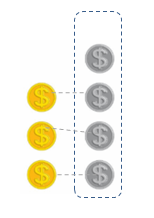
Question 2.
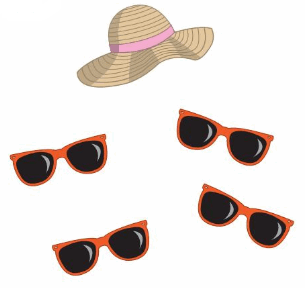
Answer:
The number of spectacles is more than the number of toys.
so we have to circle the spectacles.
Explanation:
In the above-given figure,
given that circle, the group is greater than the number of the other group.
The number of spectacles is more than the number of toys.
so we have to circle the spectacles.
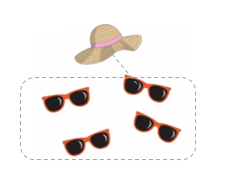
Directions:
1 and 2 Draw lines between the counters in each group. Circle the group that is greater in number than the other group.
Question 3.
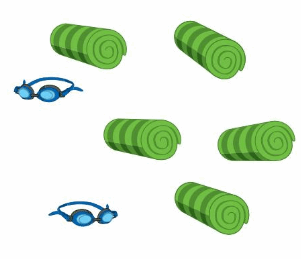
Answer:
The number of mats is more than the number of spectacles.
so we have to circle the mats.
Explanation:
In the above-given figure,
given that circle, the group is greater than the number of the other group.
The number of mats is more than the number of spectacles.
so we have to circle the mats.
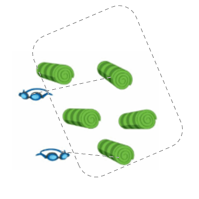
Question 4.
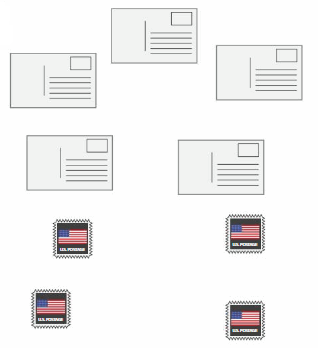
Answer:
The number of monitors is more than the number of pictures.
so we have to circle the monitors.
Explanation:
In the above-given figure,
given that circle, the group is greater than the number of the other group.
The number of monitors is more than the number of pictures.
so we have to circle the monitors.
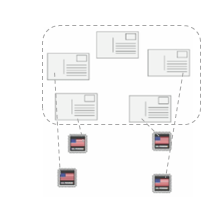
Question 5.
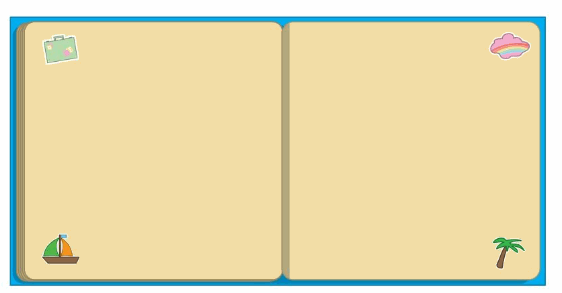
Answer:
The number of photos is more than the number of stickers.
so we have to draw the lines between the objects.
Explanation:
In the above-given figure,
given that circle, the group is greater than the number of the other group.
The number of photos is more than the number of stickers.
so we have to draw the lines between the objects.
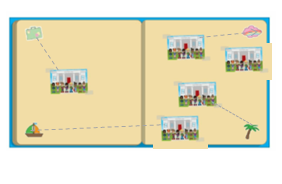
Directions:
3 and 4 Draw lines between the objects in each group. Circle the group that is greater in number than the other group. 5 Draw photos on the scrapbook so that the number of photos is greater than the number of stickers. Draw lines between the objects in each group to show that you are correct.
Lesson 2.3 Less Than
Explore and Grow
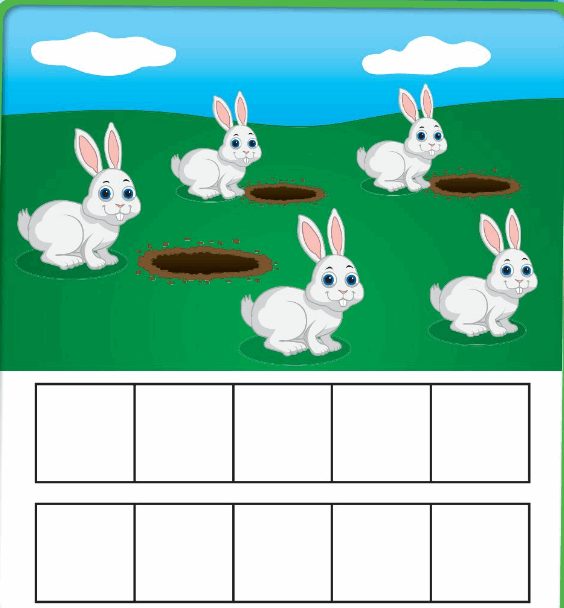
Answer:
The number of holes is less than the number of rabbits.
There are fewer holes.
Explanation:
In the above-given figure,
The number of holes is less than the number of rabbits.
There are fewer holes.
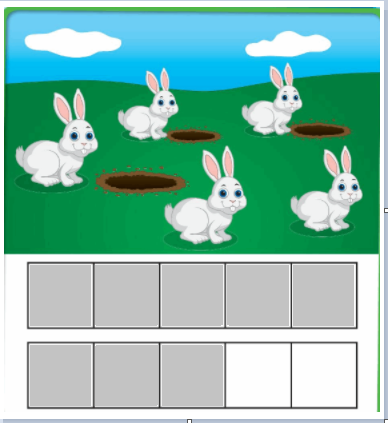
Directions:
Use counters to show the number of rabbits. Use counters to show the number of holes. Are there fewer rabbits or fewer holes?
Think and Grow
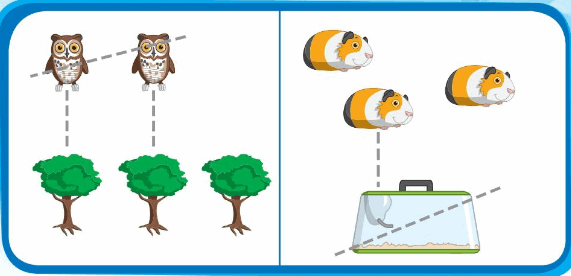
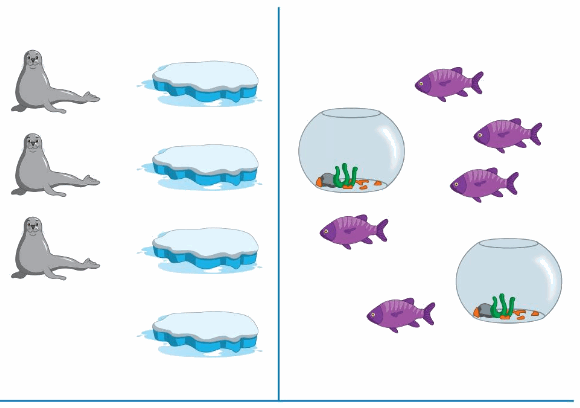
Answer:
a.The number of pigeons is less than the number of clouds.
There are fewer pigeons.
Explanation:
In the above-given figure,
The number of pigeons is less than the number of clouds.
There are fewer pigeons.
Answer:
b.The number of aquariums is less than the number of fishes.
There are fewer aquariums.
Explanation:
In the above-given figure,
The number of aquariums is less than the number of fishes.
There are fewer aquariums.
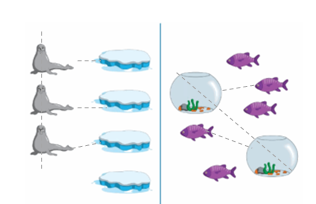
Directions:
Draw lines between the objects in each group. Draw a line through the group that is less in number than the other group.
Apply and Grow: Practice
Question 1.
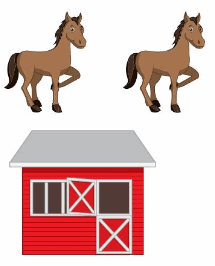
Answer:
The number of rooms is less than the number of horses.
There are fewer rooms.
Explanation:
In the above-given figure,
The number of rooms is less than the number of horses.
There are fewer rooms.
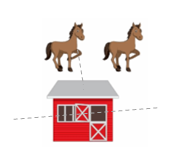
Question 2.
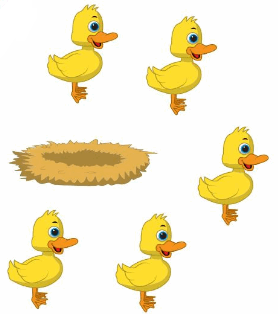
Answer:
The number of lands is less than the number of chicks.
There are fewer lands.
Explanation:
In the above-given figure,
The number of lands is less than the number of chicks.
There are fewer lands.
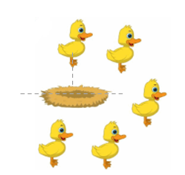
Question 3.
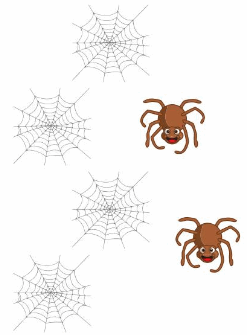
Answer:
The number of spiders is less than the number of webs.
There are fewer webs.
Explanation:
In the above-given figure,
The number of spiders is less than the number of webs.
There are fewer webs.
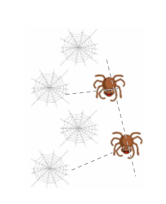
Question 4.
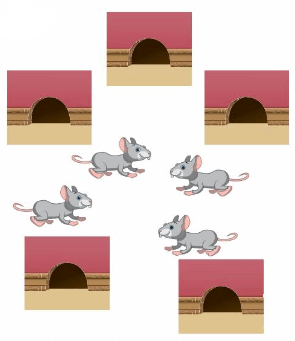
Answer:
The number of rabbits is less than the number of borrows.
There are fewer borrows.
Explanation:
In the above-given figure,
The number of rabbits is less than the number of borrows.
There are fewer borrows.
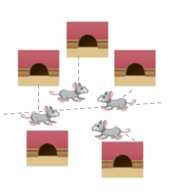
Directions:
1 – 4 Draw lines between the objects in each group. Draw a line through the group that is less in number than the other group.
Think and Grow: Modeling Real Life

Answer:
The number of hummingbirds is less than the number of flowers.
There are fewer hummingbirds.
Explanation:
In the above-given figure,
The number of hummingbirds is less than the number of flowers.
There are fewer hummingbirds.
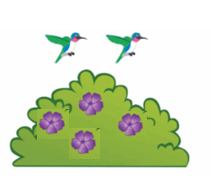
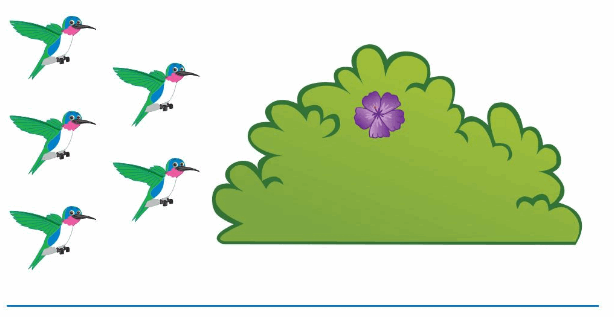
Answer:
The number of flowers is less than the number of hummingbirds.
There are fewer flowers.
Explanation:
In the above-given figure,
The number of flowers is less than the number of hummingbirds.
There are fewer flowers.
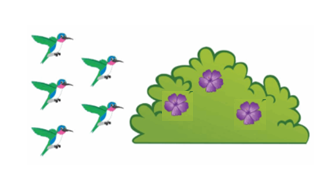
Directions
- Draw flowers on the bush so that the number of hummingbirds is less than the number of flowers. Draw lines between the objects in each group to show that you are correct.
- Draw flowers on the bush so that the number of owers is less than the number of hummingbirds. Draw lines between the objects in each group to show that you are correct.
Less Than Homework & Practice 2.3
Question 1.
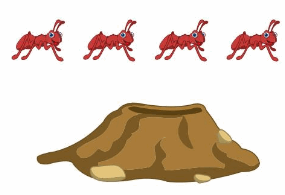
Answer:
The number of holes is less than the number of ants.
There are fewer holes.
Explanation:
In the above-given figure,
The number of holes is less than the number of ants.
There are fewer holes.
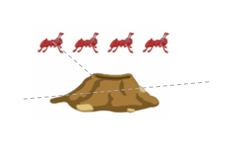
Question 2.
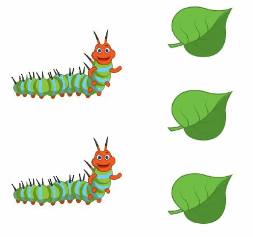
Answer:
The number of caterpillars is less than the number of leaves.
There are fewer caterpillars.
Explanation:
In the above-given figure,
The number of caterpillars is less than the number of leaves.
There are fewer caterpillars.
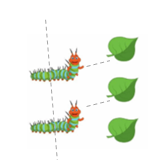
Directions:
1 and 2 Draw lines between the objects in each group. Draw a line through the group that is less in number than the other group.
Question 3.
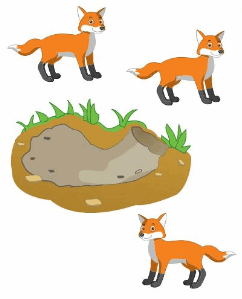
Answer:
The number of grass is less than the number of foxes.
There is fewer grass.
Explanation:
In the above-given figure,
The number of grass is less than the number of foxes.
There is fewer grass.
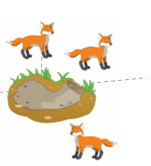
Question 4.
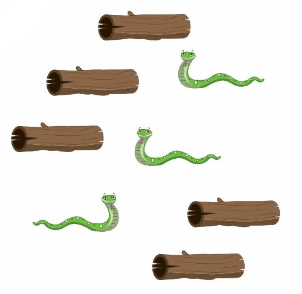
Answer:
The number of snakes is less than the number of logs.
There are fewer logs.
Explanation:
In the above-given figure,
The number of snakes is less than the number of logs.
There are fewer logs.
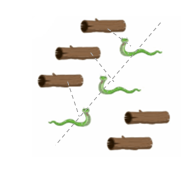
Question 5.
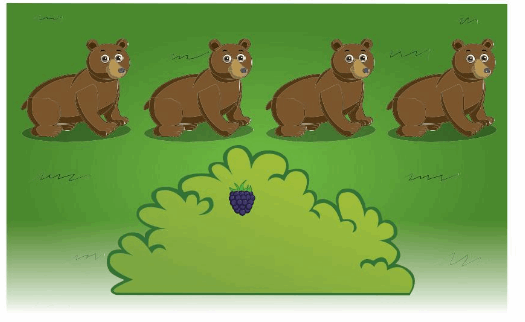
Answer:
The number of berries is less than the number of bears.
There is one berry and there are four bears.
Explanation:
In the above-given figure,
The number of berries is less than the number of bears.
There are fewer berries.
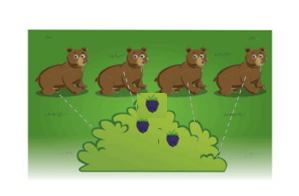
Directions:
3 and 4 Draw lines between the objects in each group. Draw a line through the group that is less in number than the other group. 5 Draw berries on the bush so that the number of berries is less than the number of bears. Draw lines between the objects in each group to show that you are correct.
Lesson 2.4 Compare Groups to 5 by Counting
Explore and Grow
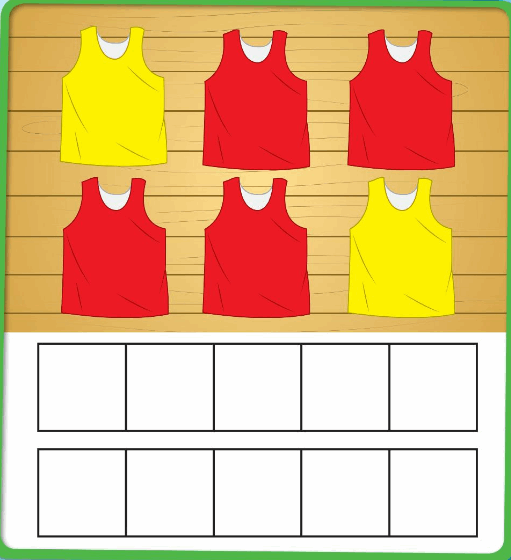
Answer:
Group A has more red jerseys.
Group B has fewer yellow jerseys.
Explanation:
In the above-given figure,
There are yellow and red jerseys.
the yellow jerseys are less than the red jerseys.
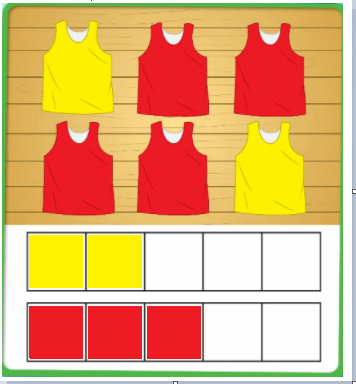
Directions:
Use counters to show the number of yellow jerseys. Use counters to show the number of red jerseys. Tell which group has more and which group has less.
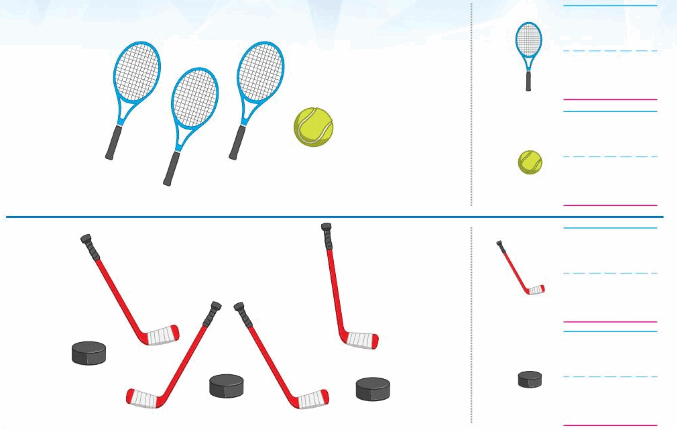
Answer:
The number of bats = 3
The number of balls = 1
Explanation:
In the above-given figure,
the shuttle bats = 3
balls = 1
Answer:
The number of bats = 4
The number of balls = 3
Explanation:
In the above-given figure,
the hockey bats = 4
balls = 3
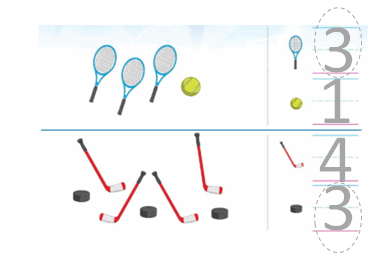
Directions:
Count the objects in each group. Write each number.
- Is the number of purple dots equal to the number of green dots? Circle the thumbs up for yes or the thumbs down for no.
- Compare the numbers of tennis rackets and tennis balls. Circle the number that is greater than the other number.
- Compare the numbers of hockey sticks and hockey pucks. Draw a line through the number that is less than the other number.
Apply and Grow: Practice
Question 1.
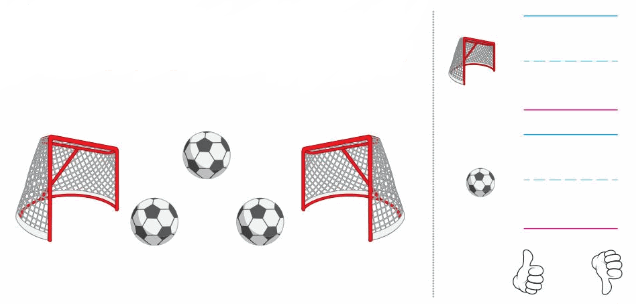
Answer:
The number of objects is not equal.
Explanation:
In the above-given figure,
the number of balls is not equal to the number of nets.
so we have to circle down.
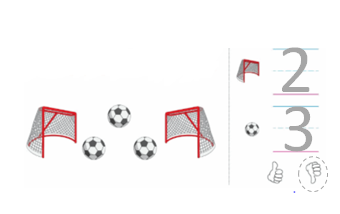
Question 2.
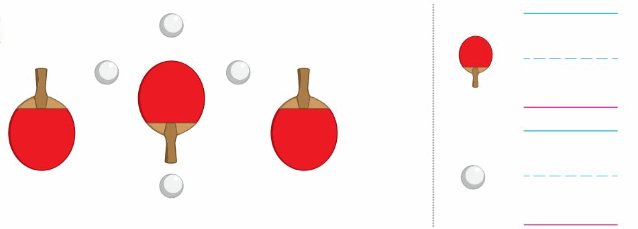
Answer:
The number of bubbles is greater than the number of stickers.
Explanation:
In the above-given figure,
The number of bubbles is greater than the number of stickers.
given that draw lines between the object in each group.
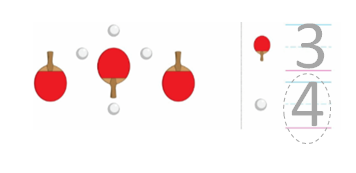
Question 3.
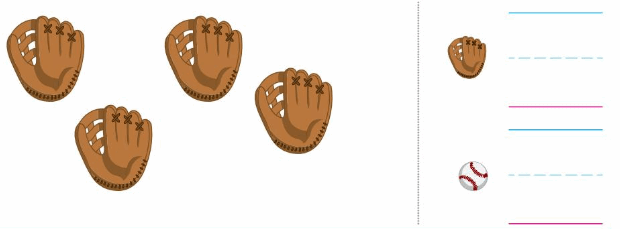
Answer:
The number of balls is less than the number of hands.
There are fewer balls.
Explanation:
In the above-given figure,
The number of balls is less than the number of hands.
There are fewer balls.
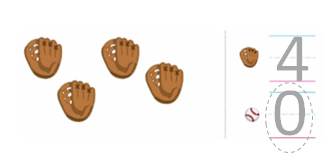
Directions:
Count the objects in each group. Write each number. 1 Is the number of soccer balls equal to the number of soccer goals? Circle the thumbs up for yes or the thumbs down for no. 2 Circle the number that is greater than the other number. 3 Draw a line through the number that is less than the other number.
Think and Grow: Modeling Real Life
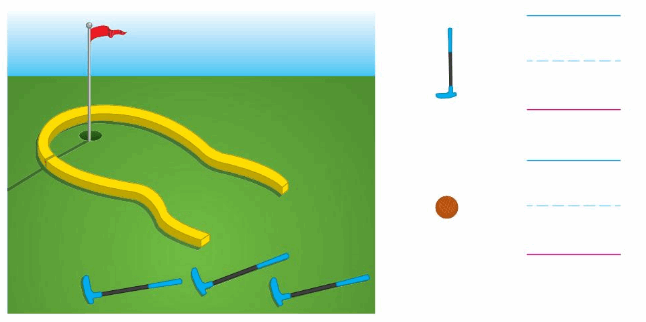
Answer:
The number of golf balls is greater than the number of golf clubs.
Explanation:
In the above-given figure,
The number of balls is greater than the number of golf clubs.
given that draw lines between the object in each group.
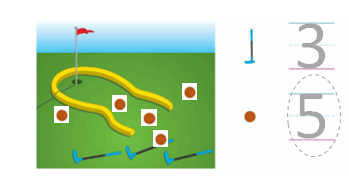
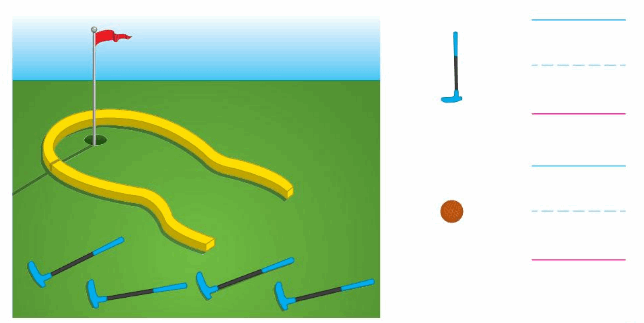
Answer:
The number of balls is less than the number of golf clubs.
There are fewer balls.
Explanation:
In the above-given figure,
The number of balls is less than the number of golf clubs.
There are fewer balls.
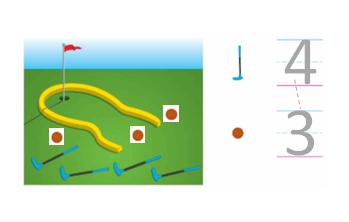
Directions:
- Draw golf balls on the ground so that the number of golf balls is greater than the number of golf clubs. Write the number of each object. Circle the number that is greater than the other number.
- Draw golf balls on the ground so that the number of golf balls is less than the number of golf clubs. Write the number of each object. Draw a line through the number that is less than the other number.
Compare Groups to 5 by Counting Homework & Practice 2.4
Question 1.
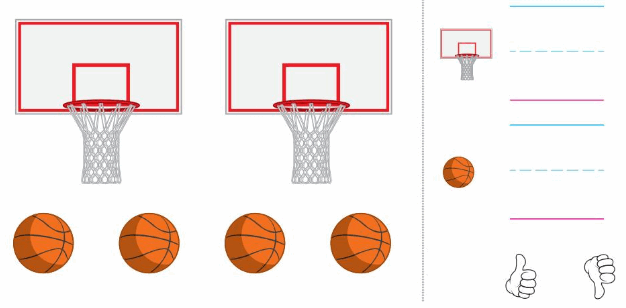
Answer:
No.
Explanation:
In the above-given figure,
the number of basketball hoops is not equal to the number of basketballs.
Given that circle the thumbs up for yes or the thumbs down for no.
so we have to circle down.
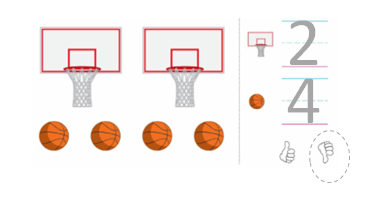
Directions:
1 Count the objects in each group. Write each number. Is the number of basketball hoops equal to the number of basketballs? Circle the thumbs up for yes or the thumbs down for no.
Question 2.
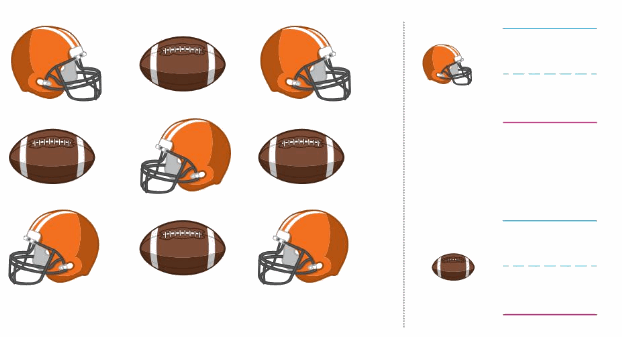
Answer:
The number of lamps is greater than the number of holes.
Explanation:
In the above-given figure,
The number of lamps is greater than the number of holes.
given that draw lines between the object in each group.
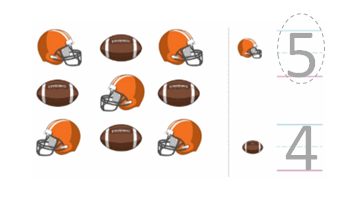
Question 3.
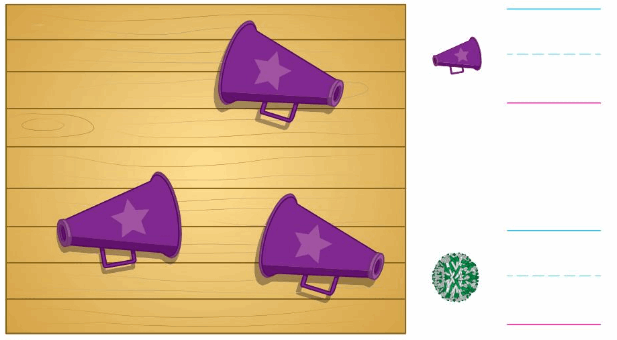
Answer:
The number of pom-poms is less than the number of megaphones.
There is one pom-pom and there are three megaphones.
Explanation:
In the above-given figure,
The number of pom-poms is less than the number of megaphones.
There are fewer pom-poms.
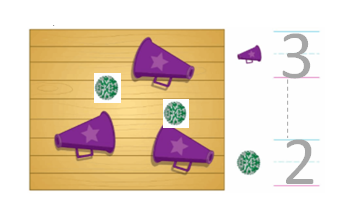
Directions:
2 Count the objects in each group. Write each number. Circle the number that is greater than the other number. 3 Draw pom-poms on the floor in the picture so that the number of pom-poms is less than the number of megaphones. Write the number of each object. Draw a line through the number that is less than the other number.
Lesson 2.5 Compare Numbers to 5
Explore and Grow
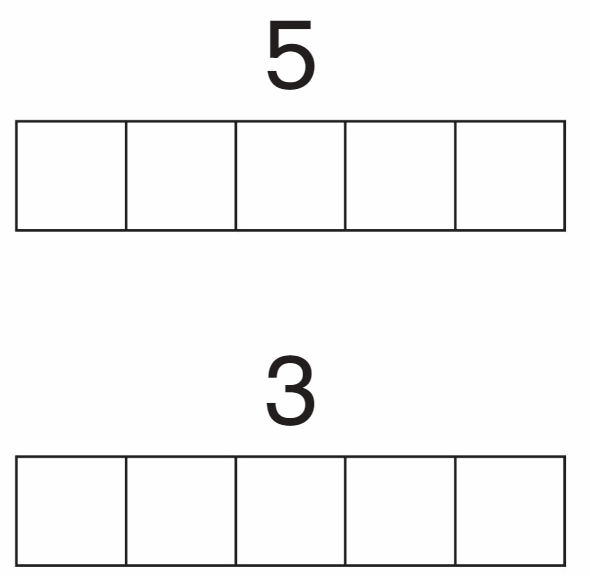
Answer:
5 is greater than the other number 3.
3 is less than the other number 5.
Explanation:
Given that the which number is greater than the other number.
given numbers are 3 and 5.
5 is greater than the other number 3.
3 is less than the other number 5.
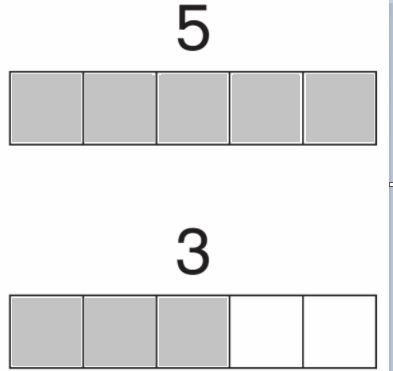
Directions:
Which number is greater than the other number? Which number is less than the other number? Use counters to show how you know.
Think and Grow
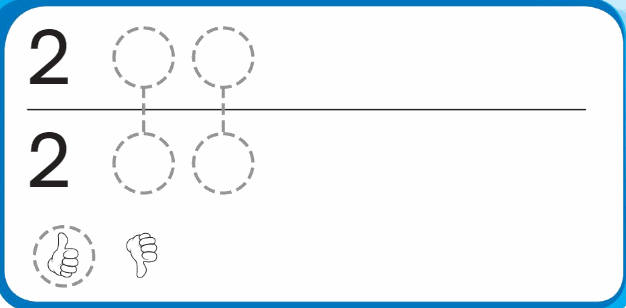
Answer:
Yes.
The numbers are equal.
Explanation:
Given that the numbers are equal.
yes, the numbers are equal.
so we have to circle up.
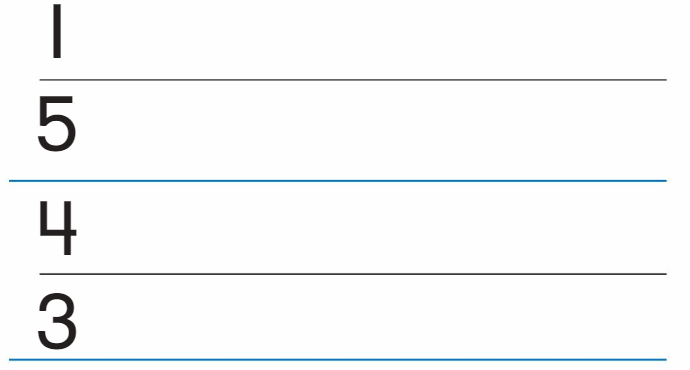
Answer:
5 is greater than the 1, 3, 4.
Explanation:
In the above-given figure,
given that circle the number that is greater the other number.
5 is greater than the 1, 3, 4.
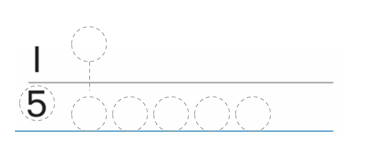
Answer:
1 is less than the other number.
Explanation:
In the above-given figure,
given that draw, a line through the number is less than the other number.
1, 3, 4 is less than 5.
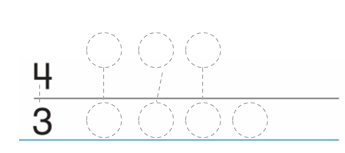
Directions:
Compare the numbers.
- Are the numbers equal? Circle the thumbs up for yes or the thumbs down for no. Draw to show how you know.
- Circle the number that is greater than the other number. Draw to show how you know.
- Draw a line through the number that is less than the other number. Draw to show how you know.
Apply and Grow: Practice
Question 1.
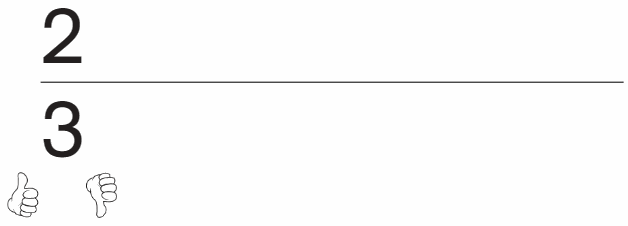
Answer:
The numbers are not equal.
Explanation:
Given that the numbers are 3 and 2.
the numbers are not equal.
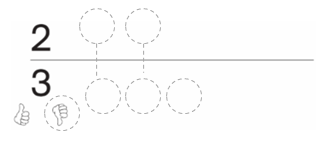
Question 2.

Answer:
2 is greater than the other number.
Explanation:
In the above-given figure,
the number 2 is greater than the other number 1.
given that the numbers are 1 and 2.
Question 3.

Answer:
4 is less than 5.
Explanation:
In the above-given figure,
given that draw a line through the number that is less than the other number.
4 is less than 5.
the given numbers are 4 and 5.
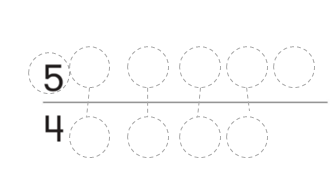
Directions:
Compare the numbers.
1 Are the numbers equal? Circle the thumbs up for yes or the thumbs down for no. Draw to show how you know. 2 Circle the number that is greater than the other number. Draw to show how you know. 3 Draw a line through the number that is less than the other number. Draw to show how you know.
Think and Grow: Modeling Real Life
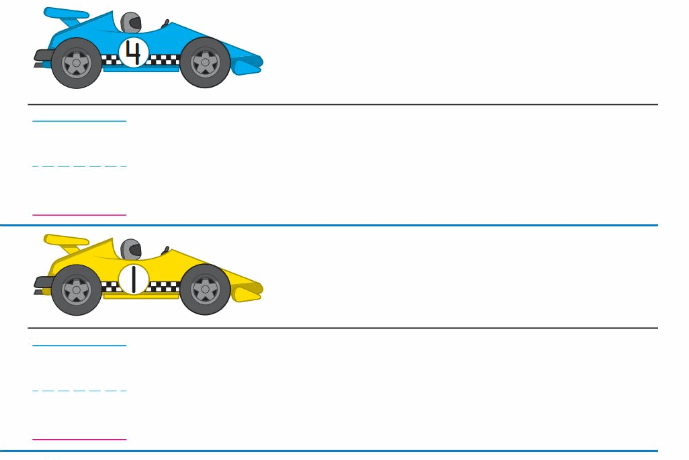
Answer:
a.The number equals to the number on the car is 4.
Explanation:
In the above-given figure,
the number which equals the number on the car is 4.
given that the number on the car is 4.
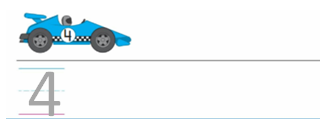
Answer:
b.The number greater than the number on the car is 2.
Explanation:
In the above-given figure,
the number greater than the number on the car is 2.
given that the number on the car is 1.
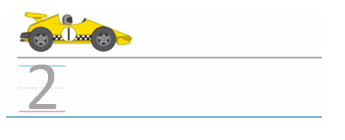
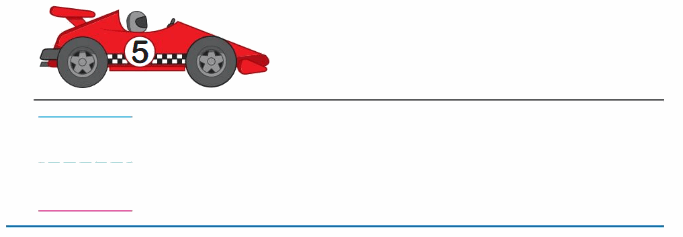
Answer:
c.The number less than the number on the car is 4.
Explanation:
In the above-given figure,
the number less than the number on the car is 4.
given that the number on the car is 5.
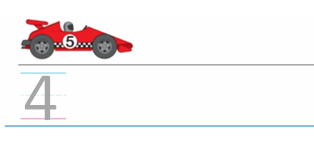
Directions:
- Write the number that is equal to the number on the car. Draw to show how you know your number is correct.
- Write a number that is greater than the number on the car. Draw to show how you know your number is correct.
- Write a number that is less than the number on the car. Draw to show how you know your number is correct.
Compare Numbers to 5 Homework & Practice 2.5
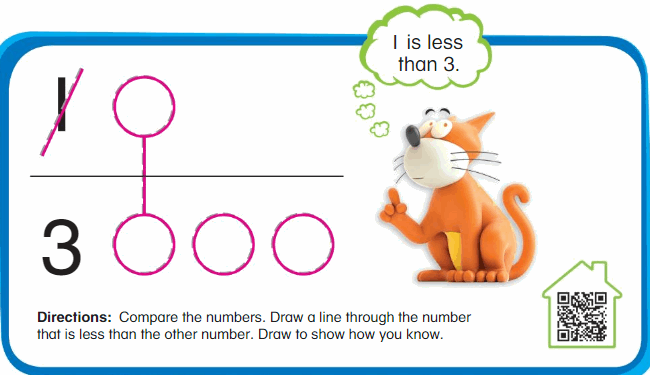
Question 1.
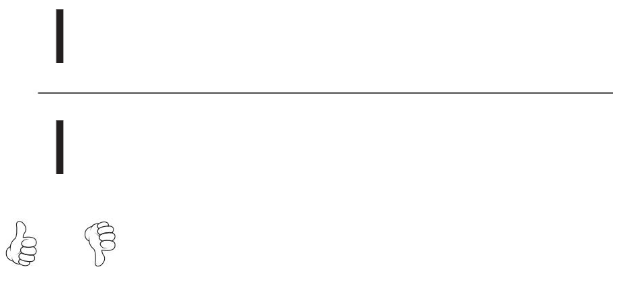
Answer:
The number is equal.
Explanation:
In the above-given figure,
Given that the numbers are 1 and 1.
the numbers are equal.
so we have to circle up.
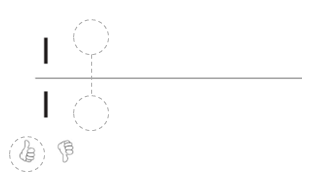
Directions:
1 Compare the numbers. Are the numbers equal? Circle the thumbs up for yes or the thumbs down for no. Draw to show how you know.
Question 2.
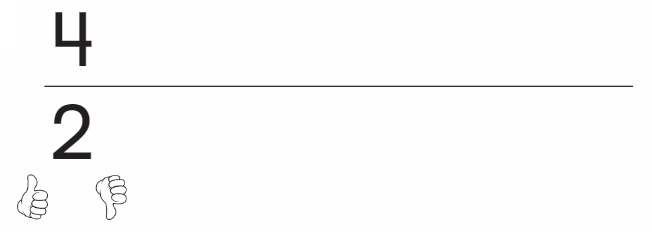
Answer:
The number are not equal.
Explanation:
In the above-given figure,
Given that the numbers are 4 and 2.
the numbers are not equal.
so we have to circle down.
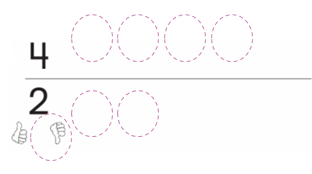
Question 3.

Answer:
The number less than the number 5 is 2.
Explanation:
In the above-given figure,
the number less than the number 5 is 2.
given that the number are 2 and 5.
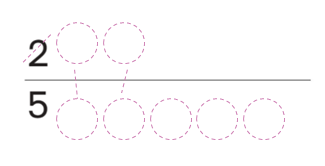
Question 4.
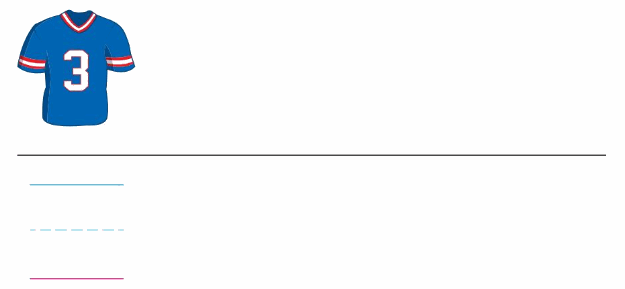
Answer:
c.The number greater than the number on the jersey is 4.
Explanation:
In the above-given figure,
the number greater than the number on the jersey is 4.
given that the number on the jersey is 3.
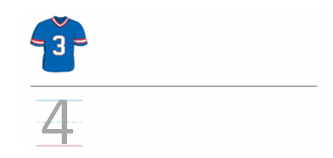
Directions:
2 Compare the numbers. Are the numbers equal? Circle the thumbs up for yes or the thumbs down for no. Draw to show how you know. 3 Compare the numbers. Draw a line through the number that is less than the other number. Draw to show how you know. 4 Write a number that is greater than the number on the jersey. Draw to show how you know your number is correct.
Compare Numbers 0 to 5 Performance Task
Question 1.

Answer:
The dots in each side of the domino = 5
Explanation:
In the above-given figure,
the dots on the left side = 1.
the dots on the right side = 4
the total number of dots on each side of the domino = 5
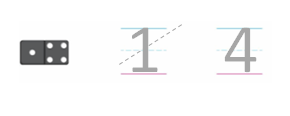
Question 2.
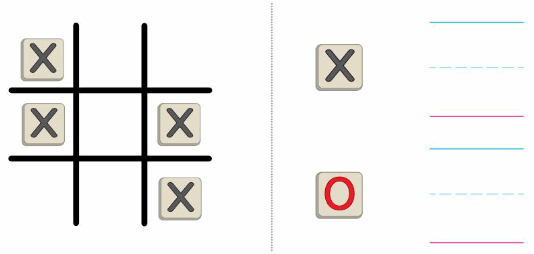
Answer:
The number of 0’s is greater than the number of x’s.
Explanation:
In the above-given figure,
we have to draw the 0’s on the game board.
The number of 0’s is greater than the number of x’s.
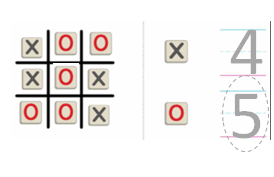
Question 3.
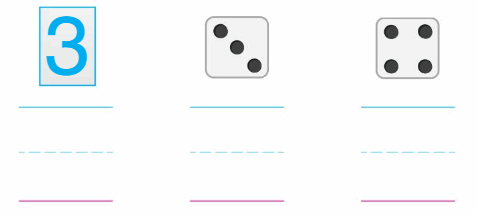
Answer:
The numbers equal are 3.
Explanation:
In the above-given figure,
the numbers not equal are 4.
the numbers equal are 3.
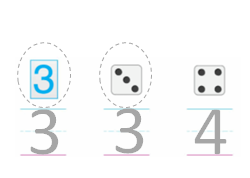
Directions:
1 Count the dots on each side of the domino. Write the 2 numbers. Draw a line through the number that is less than the other number. 2 Draw O’s on the game board so that the number of O’s is greater than the number of X’s. Write each number. Circle the number that is greater than the other number. 3 Write each number. Circle the numbers that are equal.
Compare Numbers 0 to 5 Activity
Toss and Compare
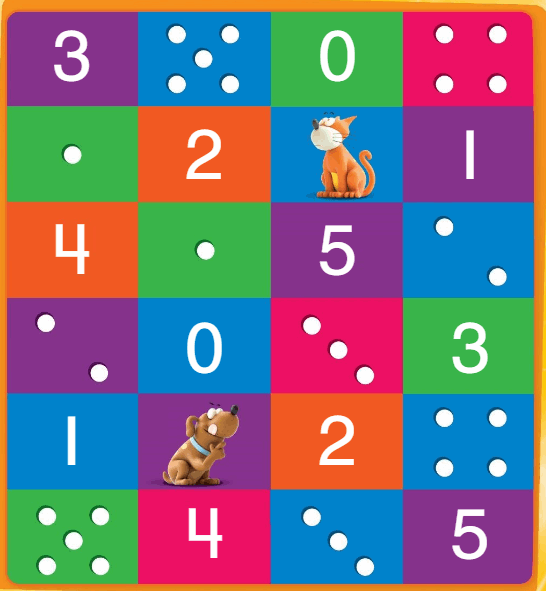
Directions:
Take turns tossing a counter onto the board. If the counter lands on Newton or Descartes, choose any number from 0 to 5. Write the numbers on your Toss and Compare Numbers from 0 to 5 Recording Sheet. Circle the number that is greater than the other number. Circle both numbers if they are equal. Repeat this process until you fill your sheet.
Compare Numbers 0 to 5 Chapter Practice
2.1 Equal Groups
Question 1.
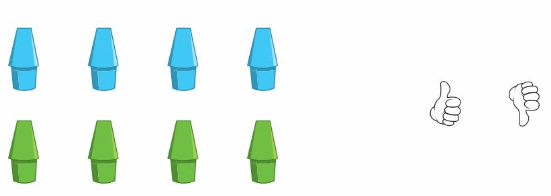
Answer:
The number of objects is equal.
Explanation:
In the above-given figure,
the number of blue balls is equal to the number of green balls.
so we have to circle up.
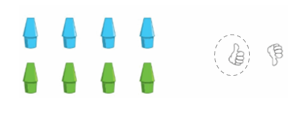
Question 2.

Answer:
The number of objects is not equal.
Explanation:
In the above-given figure,
the number of ants is not equal to the number of ant holes.
so we have to circle down.

Question 3.
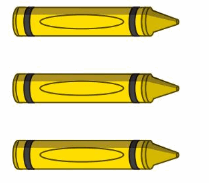
Answer:
The number of objects is not equal.
Explanation:
In the above-given figure,
the number of pencils not equal to the number of crayons.
so we have to circle down.
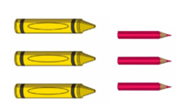
Directions:
1 and 2 Draw lines between the objects in each group. Are the numbers of objects equal? Circle the thumbs up for yes or the thumbs down for no. 3 Draw pencils so that the numbers of crayons and pencils are equal. Draw lines between the objects in each group to show that you are correct.
2.2 Greater Than
Question 4.
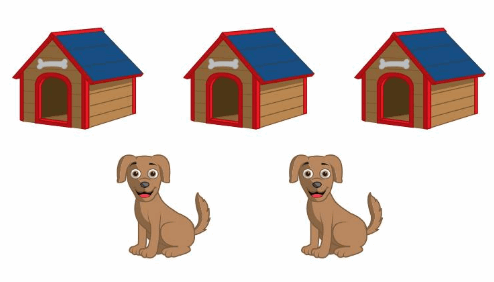
Answer:
The number of houses is greater than the number of dogs.
Explanation:
In the above-given figure,
The number of houses is greater than the number of dogs.
given that draw lines between the object in each group
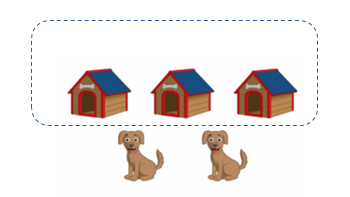
2.3 Less Than
Question 5.
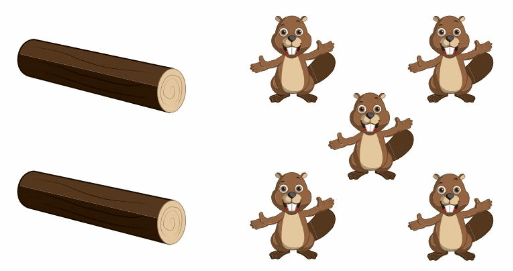
Answer:
a.The number of logs is less than the number of dogs.
There are fewer logs.
Explanation:
In the above-given figure,
The number of logs is less than the number of dogs.
There are fewer logs.
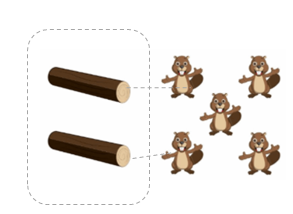
Directions:
Draw lines between the objects in each group.
4 Circle the group that is greater in number than the other group.
5 Draw a line through the group that is less in number than the other group
2.4 Compare Groups to 5 by Counting
Question 6.
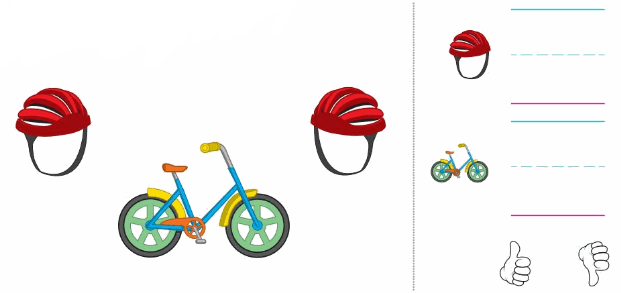
Answer:
The number of objects is not equal.
Explanation:
In the above-given figure,
the number of cycles is not equal to the number of helmets.
so we have to circle down.
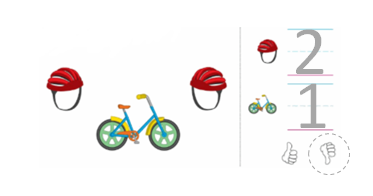
Question 7.
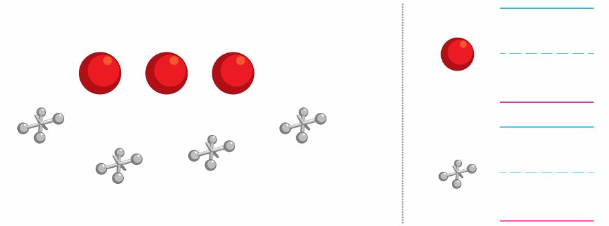
The number of bottles is more than the number of balls.
so we have to circle the bottles.
Explanation:
In the above-given figure,
given that circle, the group is greater than the number of the other group.
The number of bottles is more than the number of balls.
so we have to circle the bottles.
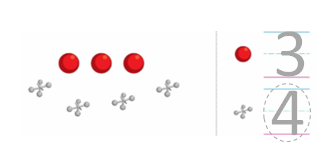
Question 8.
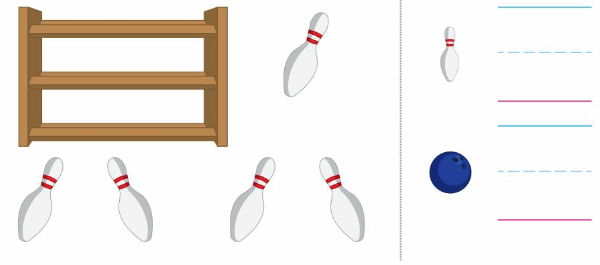
Answer:
The number of tables is less than the number of golf.
There are fewer tables.
Explanation:
In the above-given figure,
The number of tables is less than the number of golf.
There are fewer tables.
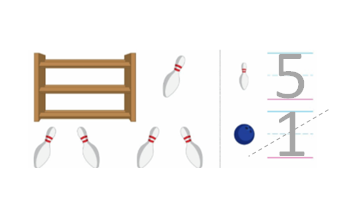
Directions:
Count the objects in each group. Write each number. 6 Is the number of helmets equal to the number of bikes? Circle the thumbs up for yes or the thumbs down for no. 7 Circle the number that is greater than the other number. 8 Draw a line through the number that is less than the other number.
2.5 Compare Numbers to 5
Question 9.
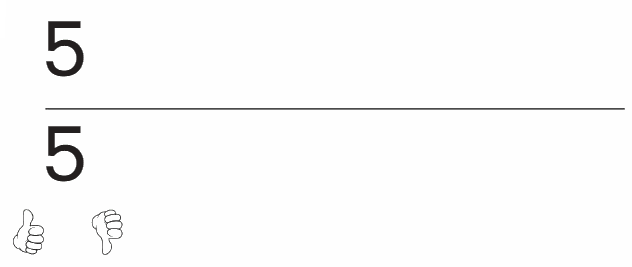
Answer:
The number is equal.
Explanation:
In the above-given figure,
Given that the numbers are 5 and 5.
the numbers are equal.
so we have to circle up.
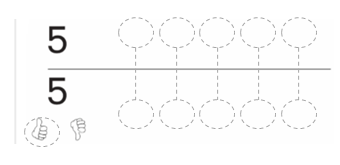
Question 10.

Answer:
The number greater than the number 3 is 4.
Explanation:
In the above-given figure,
the number greater than the number 3 is 4.
given that the number are 3 and 4.
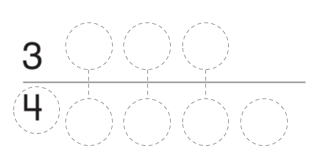
Question 11.

Answer:
The number less than the number 4 is 2.
Explanation:
In the above-given figure,
the number less than the number 4 is 2.
given that the number are 2 and 4.
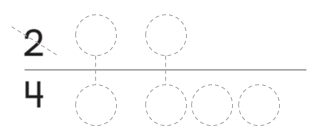
Directions:
Compare the numbers.
9 Are the numbers equal? Circle the thumbs up for yes or the thumbs down for no. Draw to show how you know. 10 Circle the number that is greater than the other number. Draw to show how you know. 11 Draw a line through the number that is less than the other number. Draw to show how you know.
Conclusion:
All the Questions and Answers given on this page are as per the latest edition. Refer to the Big Ideas Math Answers Grade K Chapter 2 Compare Numbers 0 to 5 provided here and score maximum marks in the exams. We suggest the students make use of this platform to learn the concepts quickly and easily. Get a brief explanation for all the problems from our BIM Book Grade K Answer Key Chapter 2 Compare Numbers 0 to 5.
